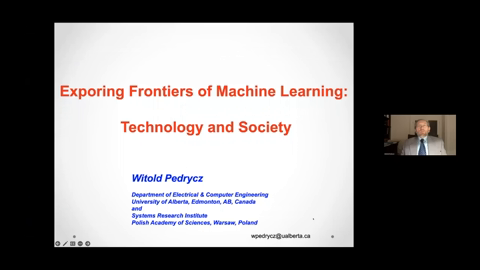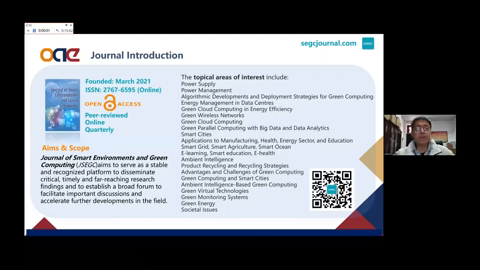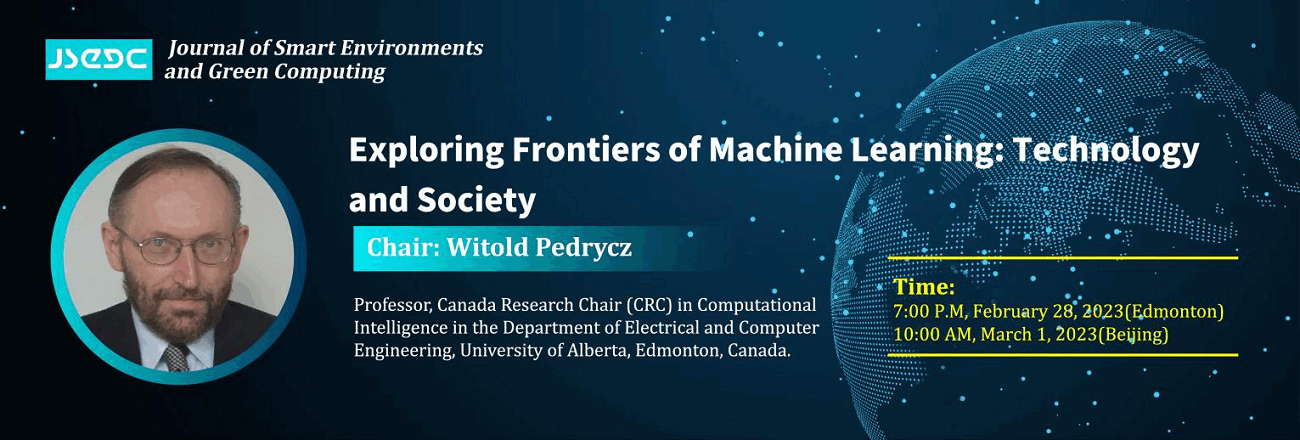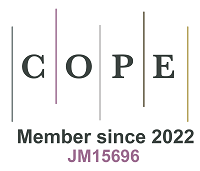Contents
Host

Prof.Jizhong Zhu
School of Electric Power,South China University of Technology,Guangzhou, China.
Speaker

Prof. Witold Pedrycz
Canada Research Chair in Computational Intelligence in the Department of Electrical and Computer Engineering, University of Alberta, Edmonton, Canada.
Witold Pedrycz (IEEE Life Fellow) is Professor in the Department of Electrical and Computer Engineering, University of Alberta, Edmonton, Canada. He is also with the Systems Research Institute of the Polish Academy of Sciences, Warsaw, Poland. Dr. Pedrycz is a foreign member of the Polish Academy of Sciences and a Fellow of the Royal Society of Canada. He is a recipient of several awards including Norbert Wiener award from the IEEE Systems, Man, and Cybernetics Society, IEEE Canada Computer Engineering Medal, a Cajastur Prize for Soft Computing from the European Centre for Soft Computing, a Killam Prize, a Fuzzy Pioneer Award from the IEEE Computational Intelligence Society, and 2019 Meritorious Service Award from the IEEE Systems Man and Cybernetics Society. His main research directions involve Computational Intelligence, Granular Computing, and Machine Learning, among others. Professor Pedrycz serves as an Editor-in-Chief of Information Sciences, Editor-in-Chief of WIREs Data Mining and Knowledge Discovery (Wiley), and Co-editor-in-Chief of Int. J. of Granular Computing (Springer) and J. of Data Information and Management (Springer).
Abstract
Over the recent years, we have been witnessing spectacular achievements of Artificial Intelligence and Machine Learning (ML), in particular. We have seen highly visible accomplishments encountered in natural language processing and computer vision impacting numerous areas of human endeavors. Being driven inherently by the technologically advanced learning and architectural developments, ML constructs are highly impactful coming with far reaching consequences; just to mention autonomous vehicles, health care imaging, and decision-making processes in critical areas.
We advocate that the design and analysis of ML constructs have to be carried out in a holistic manner by identifying and addressing a series of central and unavoidable societal quests. The key challenges on the list of interest concerns data privacy, interpretability, sustainability, energy awareness (being also lucidly identified on the agenda of green AI), efficient quantification of quality of ML constructs, their brittleness and conceptual stability coming hand in hand with the varying levels of abstraction. The credibility of ML models is also of concern to the society. The above stated quests are highly intertwined and exhibit relationships with the technological end of ML. As such, they deserve diligent treatment.
The talk elaborates on the above challenges, offers definitions and identifies the linkages among them. In the pursuit of coping with such challenges, we advocate that Granular Computing can play a pivotal role offering a conceptual environment and realizing algorithmic development. As a detailed study, we discuss the ideas of federated learning, transfer learning including knowledge distillation, and credibility of ML constructs.
We advocate that the design and analysis of ML constructs have to be carried out in a holistic manner by identifying and addressing a series of central and unavoidable societal quests. The key challenges on the list of interest concerns data privacy, interpretability, sustainability, energy awareness (being also lucidly identified on the agenda of green AI), efficient quantification of quality of ML constructs, their brittleness and conceptual stability coming hand in hand with the varying levels of abstraction. The credibility of ML models is also of concern to the society. The above stated quests are highly intertwined and exhibit relationships with the technological end of ML. As such, they deserve diligent treatment.
The talk elaborates on the above challenges, offers definitions and identifies the linkages among them. In the pursuit of coping with such challenges, we advocate that Granular Computing can play a pivotal role offering a conceptual environment and realizing algorithmic development. As a detailed study, we discuss the ideas of federated learning, transfer learning including knowledge distillation, and credibility of ML constructs.
Presentation

Prof. Witold Pedrycz
Exploring Frontiers of Machine Learning: Technology and Society
NaN

Journal Introduction
NaN

Free discussion
NaN







